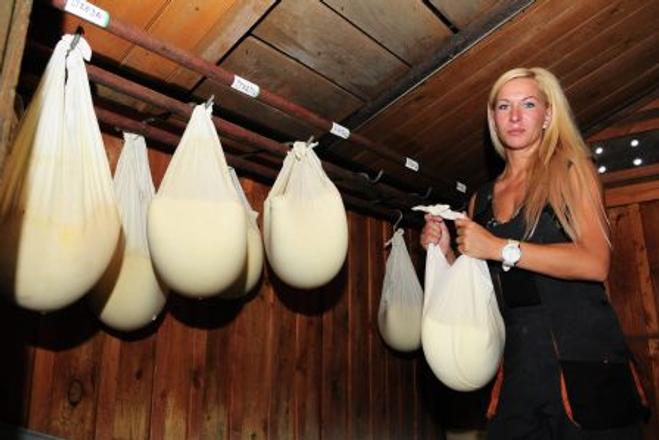There are few women in the male-dominated field of tending sheep. But the shepherd’s hut under the 1,000-years-old chapel in Iliašovce in the Spišská Nová Ves district is managed by a young lady. The tradition was passed down to Katarína Mangerová, 28, from her father.
“I grew up around a shepherd’s hut, so I was not afraid to take it over,” she told the TASR newswire. “My work begins at about 7:00 in the morning – the guys are here even earlier, as they begin with early morning milking. Most of the time, I only organise them and try to manage official things concerning vets [and] hygiene, and I also sell cheese and cook for the men,” she explained. However, she does not shun the more demanding work that the job often requires.
She started visiting the shepherd’s hut when she was five and gradually learned everything about the profession. Sheep must be milked at about three in the morning, after which the lengthy process for making sheep’s cheese begins. The sheep’s whey is boiled, the sheep pen is partitioned so as to keep their environment sanitary, and the cycle continues, the female shepherd adds. She insisted that she would not be able to do anything else.
Working in nature was natural for her, as she did not grow up in a city block. “Our family comes from Smižany,” she said, “but when I was young, we moved to Markušovce, and I commuted from there every day.” The young shepherd boss graduated from the Slovak University of Agriculture in Nitra. She works with three other men, without whom she would be lost, she stressed. They have been working the land over Iliašovce for many years. She is the only one in her family to have inherited her father’s love of nature, sheep and shepherding.
“It is hard for younger people who know nothing about agriculture, not to mention basic industry, and older people are hesitant to continue in this field,” Mangerová said, adding that the current situation in Slovak agriculture does not look rosy, but that one can survive when working dutifully and hard. She is mostly worried about low repurchase prices of goods. However, she maintained that it is easier to work with animals than with people – she said she gets along better with them, and thus, would never change her job for anything else.



 Lady shepherd form Iliatovce, (source: TASR)
Lady shepherd form Iliatovce, (source: TASR)